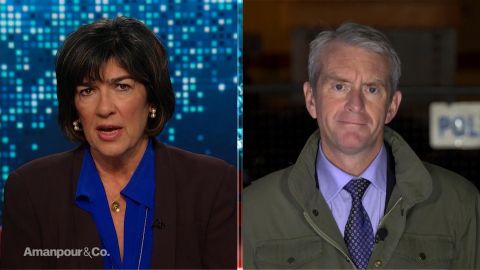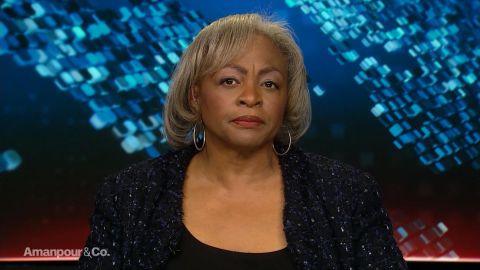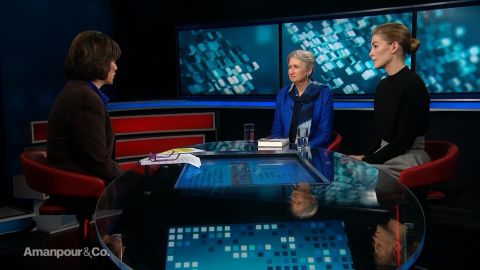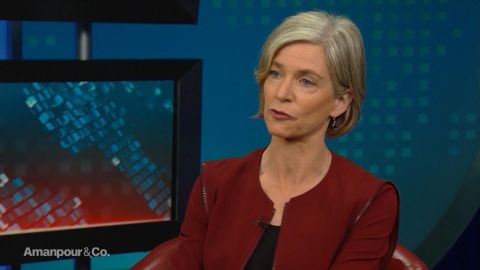Read Transcript EXPAND
ROSAMUND PIKE: I love the way you say that. Marie had extraordinary empathy. And what’s always interesting is how with the human cost of war. And I think in terms of our film, I think it’s very interesting because the depiction of Middle Eastern people in Hollywood movies tends to be as the outsider, the other — sometimes the extremist, the fanatic, that’s the sort of traditional role. And here is a movie which goes into and delve into the pain of the people in these conflict regions, particularly the Syrian people, we go with Libyan people, within Iraq. And that’s not a portrait that many people in the West are often given on film, and it’s something I’m quite proud of. And I think Marie would have applauded too.
CHRISTIANE AMANPOUR: We’re going to start actually with one of the clips now because it is when she’s actually meeting Photographer Paul Conroy for the first time who was with her to the end in Syria. But this is in Iraq and she’s doing her typical thing, wanting to meet up and collaborate with the best of the best. So, let us just play this and we’ll talk about it.
(BEGIN VIDEO CLIP)
PIKE: What’s your name?
JAMIE DORNAN, ACTOR, “A PRIVATE WAR”: Paul.
PIKE: I’m Marie.
DORNAN: I know.
PIKE: Are you freelance?
DORNAN: Always.
PIKE: Any good?
DORNAN: The best.
(END VIDEO CLIP)
AMANPOUR: Paul, the photographer —
PIKE: Yes.
AMANPOUR: — also I think works with you on the script and as a consultant and all the rest. What did you gain from meeting the people who she, not just knew, but worked in the field with? Plus, how did you get that uncannily accurate depiction of her?
PIKE: Oh, that’s very nice. I mean, Marie was an amazing person, an inimitable presence and I knew that in playing her I had to inhabit her. It wasn’t just — I couldn’t just play a (INAUDIBLE), I had to play her. Also, my director was a documentary maker and I knew that probably in an ideal world he would be making a documentary about Marie, which sadly he can’t. And I knew I had to deliver something that would be as close to the authenticate as I could. So, I knew that involved changing the way I walk, changing the way I spoke, changing the way I — learning to smoke.
HILSUM: Oh, a lot of that.
PIKE: Which she did a lot.
HILSUM: She (INAUDIBLE) martinis as well.
PIKE: I could — yes, learned to make — mix drink. All of the above. And Paul Conroy came with us, I think just to check out what we were doing for about a week and to get us up on our feet. And then, I think he found in our profession something akin to the sort of sense of a troubling bound on the road, you know, with people, whether it’s a sort of urgent sense of intimacy because you’re having to create something that, you know, delved deep into the human condition in a short space of time. And it’s that fast track intimacy that I’m sure people in your profession find as well. And I think he enjoyed it and he stayed with us. And actually, became our onset still photographer, you know, probably a bit of a slight release for him.
About This Episode EXPAND
Christiane Amanpour speaks with CNN International Diplomatic Editor Nic Robertson about Saudi Arabia; Carol Anderson, author of “One Person, No Vote” about voting issues; and actress Rosamund Pike author Lindsey Hilsum about journalist Marie Colvin. Walter Isaacson speaks with biochemist Jennifer Doudna about gene editing technology.
LEARN MORE



